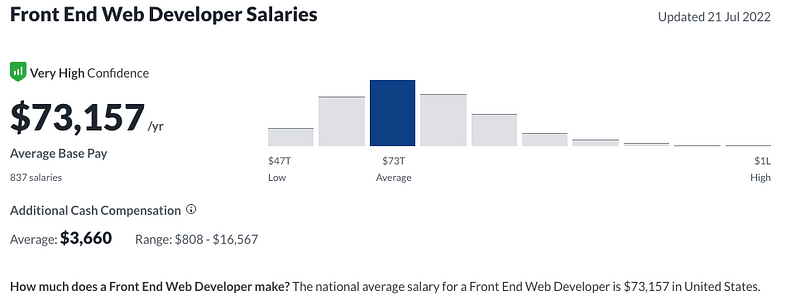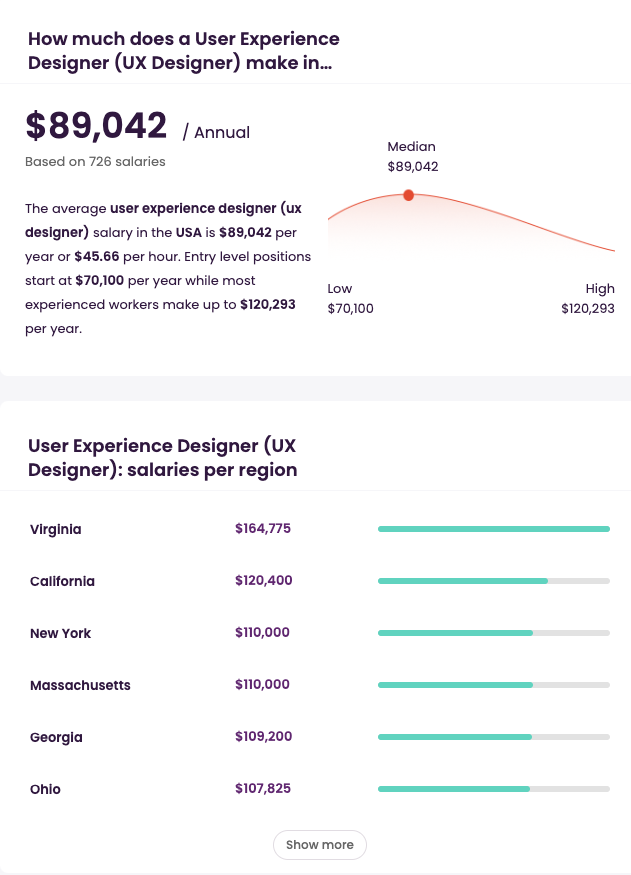Unlocking Hidden Tech Skills for Junior Web Developers
Written on
Chapter 1: Introduction to Tech Skills
Having spent nearly five years developing applications and websites, I am continually amazed at how swiftly time passes when you are passionate about your work. What captivates me most about app and web development is the ability to create something out of nothing — it all starts with a single line of code! The joy of bringing ideas to life is truly rewarding.
However, web development features low entry barriers, leading to increased competition each year. The recent pandemic has encouraged even more individuals to explore this field. Seasoned professionals often advise continuous skill enhancement to stay competitive. Yet, some skills are more sought after than others, and acquiring them can significantly enhance your portfolio.
After conducting research on high-demand skills, I discovered four technical abilities that may not seem glamorous but offer lucrative pay and serve as excellent entry points into the industry. While they might not instantly double your income, the thriving market means you could see considerable salary increases in a relatively short time.
Before we delve into these skills, their respective salaries, and some helpful resources, let’s take a look at the average earnings for junior web developers to give you a baseline.
Average Salary of Frontend Developers

According to Glassdoor, the average salary for frontend developers is approximately $73,157, with junior positions earning around $60,000. In London, Indeed cites an average salary of $91,000 for developers, while Germany reports around $70,000 for similar roles. I’ve observed numerous job postings on platforms like Twitter, with salaries ranging from $55,000 to $60,000 for JavaScript roles in London and typically around $65,000 for positions in the USA.
Location plays a crucial role in salary expectations, and a quick Google search can help you find local averages. With this salary context established, let’s explore the skills that can help elevate your earnings.
Disclaimer: Salary figures can vary significantly from one company to another. This information is based on my observations over the past two years, combined with averages from popular salary sites.
Chapter 2: In-Demand Tech Skills
2.1 DevOps
What exactly is DevOps? It’s a fusion of software development (Dev) and operations (Ops), aimed at enabling teams to produce scalable software more efficiently. DevOps reflects a shift in industry mindset, emphasizing incremental development and automation to expedite software updates.
Kubernetes has gained popularity as a starting point, allowing you to manage your infrastructure through code. Fortunately, there are numerous free resources available for those looking to get started.

According to BuiltIn, DevOps positions offer nearly double the average frontend salary, at around $126,000. Glassdoor reports an average salary of $105,000 for DevOps roles in the USA, with junior positions fetching approximately $75,000 — about $20,000 more than entry-level frontend roles.
2.2 Technical Writing
I have firsthand experience in this area, having applied for several remote technical writing roles and participated in a few interviews. Technical writing encompasses internal documentation as well as marketing materials, translating complex technical concepts into accessible language.
This includes writing documentation for internal software, creating use cases for company products, and generating technical content for developers. For instance, back in October 2020, I interviewed for a remote technical writing position offering around $93,000, and I’ve recently seen listings for $110,000 to $120,000.
It’s a manageable skill to acquire, and I wouldn’t recommend taking a formal course. Instead, immerse yourself in blogs from reputable publications and familiarize yourself with the writing styles of authors on platforms like LogRocket and DigitalOcean.
2.3 UI/UX Design and Development
UI/UX design encompasses two distinct roles. UI designers focus on the visual elements users interact with, while UX designers concentrate on enhancing user satisfaction. UX aims to ensure a seamless experience, such as easy sign-ins and streamlined forms, while UI design aims to create visually appealing and cohesive websites.
Many believe coding knowledge is essential for these roles, which is partially true. Familiarity with coding can provide an advantage, allowing you to build portfolios more effortlessly, as many job postings include coding requirements.

One of my friends recently secured a junior UX designer role with a salary ranging from $95,000 to $110,000 (remote). He was a self-taught developer with a remarkable portfolio. Glassdoor reports a $90,000 average for remote positions in this field, but take these figures with caution.
2.4 Test Driven Development (TDD)
This topic can spark debate, as many question whether TDD is the optimal approach for software development or just a trend. However, I've noticed job postings in this area attract fewer applicants compared to traditional web development roles.
TDD involves writing automated tests based on anticipated software features before developing the actual software, hence the term "test-driven." In simpler terms, software requirements translate into tests, guiding the coding process.
The salaries for TDD roles are typically higher than standard web development positions. I’ve found figures ranging from $90,000 to $160,000, with most averages hovering around $95,000 to $105,000. I even saw tweets from companies hiring Node.js developers with TDD expertise offering up to €85,000.
Final Thoughts
As reiterated, salary figures are derived from online observations and various job postings; your offer may vary based on experience and location. However, acquiring any of these skills can enhance your portfolio and potentially lead to increased earnings.
Learning is a treasure that accompanies its owner everywhere.
— Anonymous
In my own journey, mastering Kubernetes has provided me with valuable insights into the inner workings of exciting technologies. I hope you find this article informative and consider using my referral link for unlimited access to my blogs and those of other authors.
Additionally, I recently penned a blog reflecting on my first Node project after two years; you can read about it here:
I Reviewed My First Project Built 2 Years Ago. Here Are 4 Lessons I Learned.